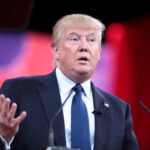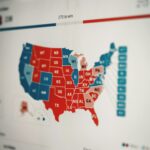Reagan Redux: Part I
Ronald Wilson Reagan was the most successful conservative statesman of modern times. No other post-WWII statesman compares to his legacy. This does not mean, of course, that he did not make mistakes. He made plenty, as anyone, especially those who live political lives, will do. George Washington said in his farewell address that: “Though, in reviewing the incidents of my administration, I am unconscious of intentional error, I am nevertheless too sensible of my defects not to think it is probable that I may have committed many errors.”
The virtue of humility, thus, must guide reflections on statesmen. Statecraft usually involves difficult choices, and solving one problem may inadvertently lead to new ones. Nonetheless, there is objective criteria to determine if a politician was successful or not. Those criteria can be defined as such: “to stop the growth of iniquity, sedition, and disorder, to protect the holy Church of God and all people of goodwill, restore the things that are gone to decay, maintain the things that are restored, punish and reform what is amiss, and confirm what is in good order.” In short, as in all things, there are objective standards by which to judge the legacy of statesmen, historical figures, and contemporary politicians.
There is an unfortunate tendency in some quarters of conservatism to condemn President Reagan. It is easy, decades later, to have perfect hindsight and know what Reagan could have done better. However, suppose one carefully reviews the man’s record. In that case, he will find that he was the rarest of things in politics, a good man, and the most successful President and conservative leader since Dwight Eisenhower.
As with all historical figures, one must place things in their proper context to understand where this figure came from and the ills and disorders he had to remedy to be judged a success or a failure. President Calvin Coolidge explained in his autobiography that “in the higher ranges of public service, men appear to come forward to perform a certain duty. When it is performed their work is done.” What was America and the world like in 1980 when Ronald Reagan was elected President of the United States? How did his party find itself? What was the geopolitical reality with which America found itself confronted with?
The nation’s state in the years immediately before 1980 was not great. As the historian Craig Shirley recounted of the domestic scene: “The decade of the 1970s was winding down, and not a moment too soon. The country’s bicentennial in 1976 stood out as the only event in which America could take pride. Otherwise, it had been a miserable time of declinism, littered with lost jobs, lost national pride, lost dreams— and lost hope. It was one of the most uninspiring decades in the history of the American Republic. As 1980 approached, there was not much that seemed exceptional about America anymore.”
In addition, as historian William Inboden explains in The Peacemaker, at the time of Reagan’s election, Iran held American hostages, the Vietnam Syndrome was in full force, and there was a patent feeling that things were out of control and, to top it all off, the Communists were winning the Cold War. The situation America found itself in before Reagan’s election was chaos and almost complete decline. In summary, the nation was economically depressed, socially chaotic, with crime rampant and liberalism dominant, and geopolitically in retreat. Suddenly, after Reagan, it had all changed it had all changed. As Jonah Goldberg wrote in Liberal Fascism, “Western Civilization was saved when the barbarians were defeated, at least temporarily, in the early 1970s.”
Into that climate of anxiety, fear and resignation came Ronald Reagan’s campaign. Reagan responded to the doomsayers with great speeches. His oratory was a powerful tool against Leftism and Soviet Communism. Reagan’s rhetoric mobilized the entire repertoire of American exceptionalism to battle against an Evil Empire, and he won. With Reagan’s election, as Henry Olsen and Peter Robinson recently discussed in a podcast, “it seemed that the country had finally returned to its senses.” The old liberal order of the 60s and 70s, as Stephen Hayward has written, fell and a conservative counter revolution took power in Washington.




